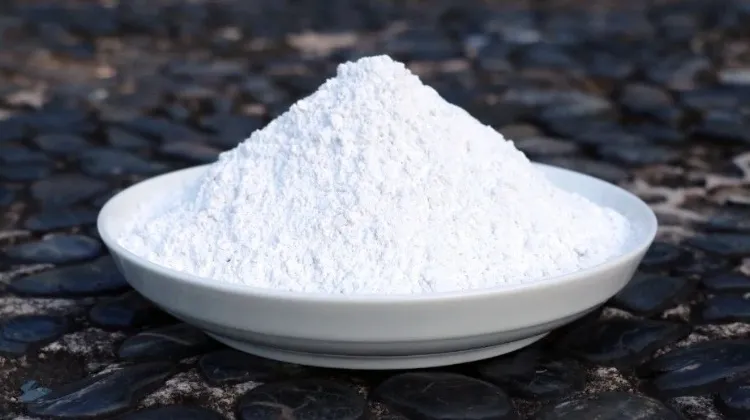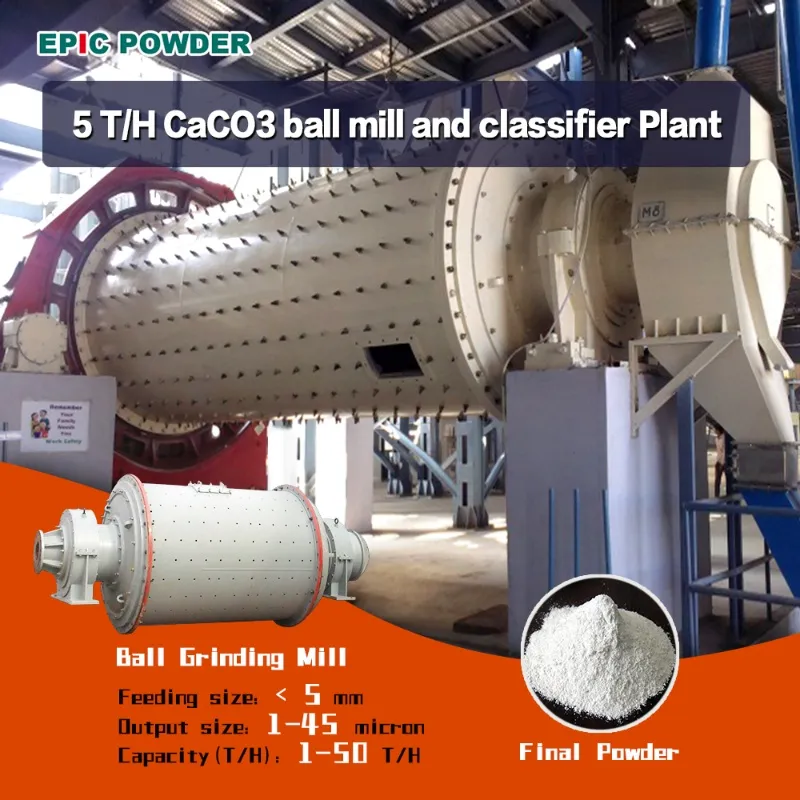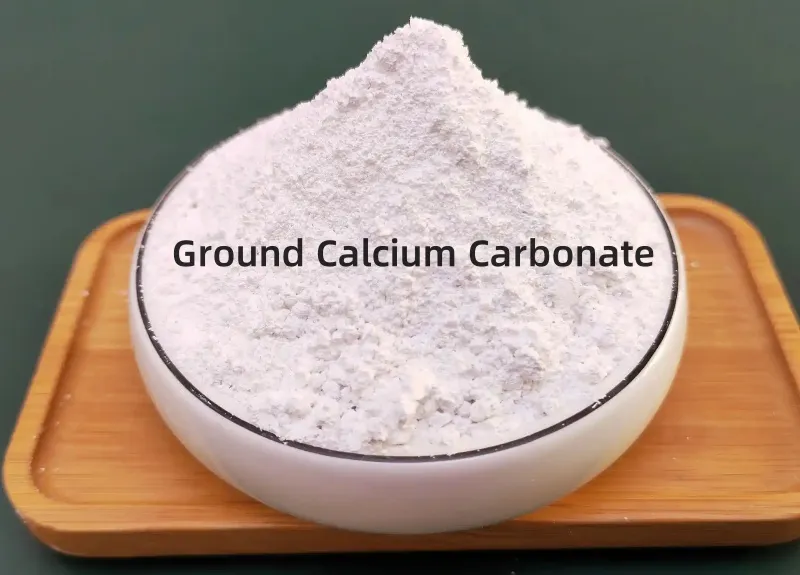Ground calcium carbonate (GCC) is an inorganic non-metallic powder produced from natural calcite, marble, limestone, and similar raw materials through mechanical grinding and classification. Due to its stable chemical properties, abundant resources, and low cost, ground calcium carbonate (GCC) is widely used in plastics, rubber, coatings, paper, and other industries.
Structural Characteristics
Crystal Structure
Ground calcium carbonate(GCC) belongs to the trigonal crystal system (calcite type), with a crystal lattice composed of Ca²⁺ and CO₃²⁻ ions arranged in a dense packing. This structure provides good stability and relatively high hardness.
Particle Morphology
- Various shapes: commonly cubic, rhombohedral, spherical-like, or irregular.
- Particle size range: typically from several microns to tens of microns; ultrafine grinding can achieve sizes below 1 μm.
- Specific surface area: the finer the particle size, the larger the surface area, which enhances surface activity and improves bonding with organic polymer materials.
Surface Characteristics
The surface of GCC has strong polarity, being hydrophilic and oleophobic. In applications, surface modification (such as stearic acid or coupling agent treatment) is often required to improve compatibility with organic matrices.
Physical Properties

Density and Hardness
| Property | Typical Range | Industrial Significance |
| Bulk density | 0.8–1.3 g/cm³ | Affects the bulk density of filled materials |
| Sedimentation volume | 1.1–1.9 mL/g | Indicates particle looseness |
| Mohs hardness | 3 (calcite) | Determines wear rate of processing equipment |
| Specific surface area | ≈1 m²/g | Affects resin wettability |
| Oil absorption | 40–60 mL/100g | Key parameter for plastic processing |
Optical Properties
Ground calcium carbonate(GCC) has high whiteness (generally above 90%), which improves the appearance and opacity of products, making it widely used in coatings and paper.
Thermal Stability
It decomposes into calcium oxide and carbon dioxide at around 825°C. At room temperature, it is chemically stable, insoluble in water, and slightly soluble in CO₂-containing water.
Dispersibility
Particle fineness and surface treatment directly affect dispersibility. GCC with a narrow particle size distribution and sufficient surface modification can be uniformly dispersed in polymers, reducing agglomeration.
Influence on Mechanical Properties
In plastics, rubber, and other composites, the structure and properties of GCC significantly affect the final product’s mechanical performance:
- Increased rigidity: Smaller particle sizes with good dispersion can improve flexural modulus and hardness.
- Improved dimensional stability: Reduces shrinkage and deformation of finished products.
- Reduced impact strength: High filler content may decrease toughness, requiring combination with other modification methods.
Typical Industry Performance
- Plastics: 400–1250 mesh GCC can increase PP/PE product impact strength by 15–20% while reducing titanium dioxide usage by 30%.
- Paper: Ultrafine grades (d97 < 2 μm) can improve paper opacity by 8–12% and significantly enhance printability.
- Coatings: Blending with 5% nano-CaCO₃ can synergistically increase latex paint scrub resistance to over 8,000 cycles.
Relationship with Processing Technology

The performance of GCC depends not only on the raw mineral quality but also on processing equipment and technology. For example, ball mill + classifier production lines, vertical mills, or ring roller mills can produce powders with different particle size distributions and morphologies. Surface modification machines can greatly enhance bonding with polymers. This is why companies like Epic Powder can offer customized GCC powder solutions for different customer needs.
Conclusion
Ground calcium carbonate(GCC), with its stable crystal structure, excellent whiteness, and thermal stability, plays an irreplaceable role in numerous industrial applications. By leveraging advanced grinding and classification technologies, controlling particle size distribution, and implementing effective surface modification, its performance can be significantly improved while maintaining cost advantages.
Epic Powder, with over 20 years of expertise in ultrafine grinding and powder engineering, provides tailor-made GCC solutions—from raw material selection to fine grinding, precision classification, and surface treatment. This ensures that GCC products not only meet but exceed the diverse performance requirements of industries such as plastics, coatings, and paper, helping customers achieve higher efficiency, better product quality, and stronger market competitiveness.
